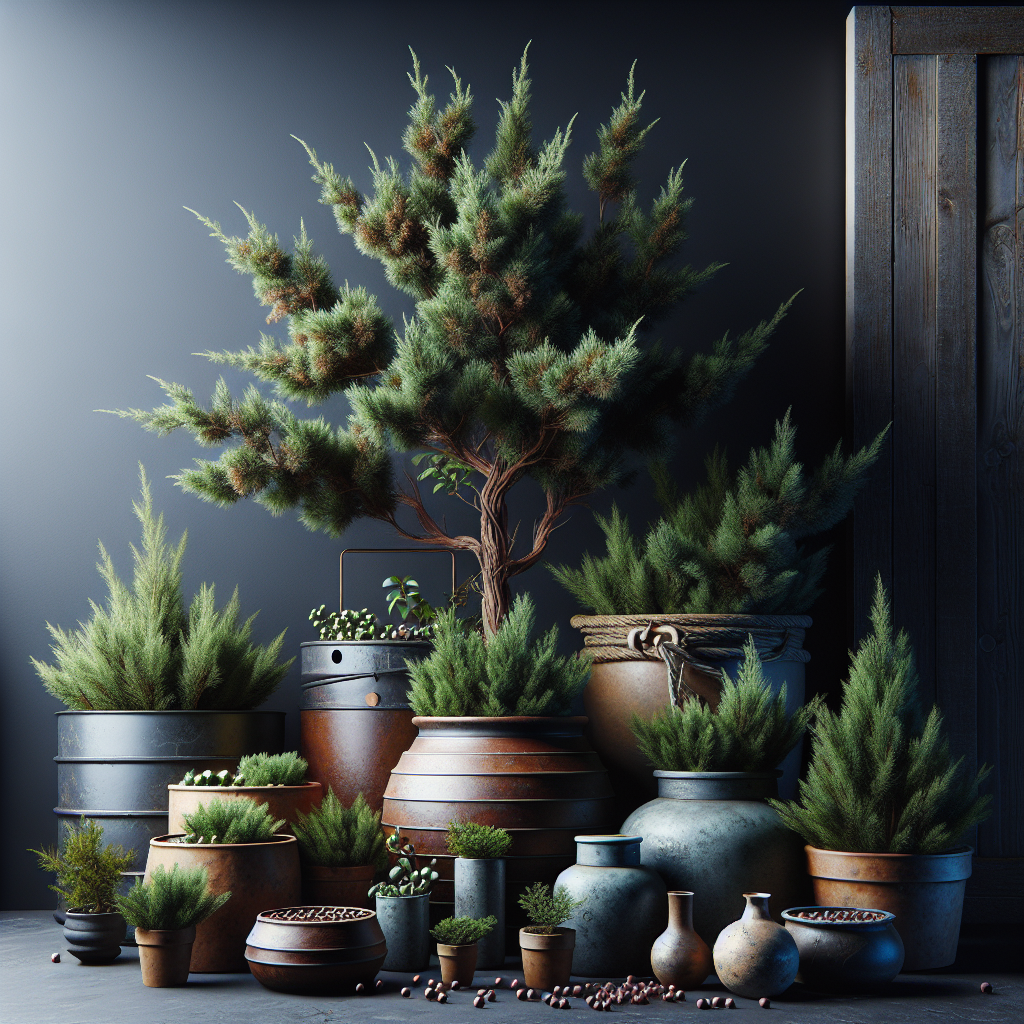Juniper trees are known for their beautiful evergreen foliage and rugged appearance, making them a popular choice for landscaping and container gardening. These hardy trees are well-suited to container growing, making them an ideal choice for those with limited space or looking to add some greenery to their patio or balcony.
One of the key benefits of growing junipers in containers is their adaptability. Junipers are extremely tolerant of a wide range of conditions, making them an excellent choice for container gardening in both hot and cold climates. They can thrive in full sun or partial shade and are relatively low-maintenance once established.
When choosing a container for your juniper tree, opt for a large pot with good drainage holes to prevent waterlogging. Junipers prefer well-drained soil, so be sure to use a high-quality potting mix designed for container gardening. Additionally, it’s important to choose a container that is large enough to accommodate the mature size of the tree, as junipers can grow quite large over time.
In terms of care, junipers require little maintenance once established in their containers. Watering is perhaps the most important aspect of caring for junipers in containers, as they prefer slightly moist soil but can be prone to root rot if overwatered. To ensure proper drainage, allow the top inch of soil to dry out between waterings and avoid watering directly onto the foliage.
Junipers also benefit from occasional pruning to maintain their shape and size. Pruning can be done in late winter or early spring before new growth begins. Use sharp pruning shears to remove any dead or damaged branches and shape the tree as desired.
In addition to their low maintenance requirements, junipers offer many aesthetic benefits when grown in containers. Their distinctive blue-green foliage adds color and texture to outdoor spaces year-round, providing a welcome pop of color during the winter months when many other plants are dormant.
Junipers are also extremely versatile in terms of design possibilities. They can be grown as standalone specimens in containers or paired with other plants such as flowers or grasses for a more mixed planting scheme. Junipers also make excellent focal points when strategically placed on patios or decks, adding structure and interest to outdoor living areas.
One popular way to incorporate junipers into container gardens is by creating miniature landscapes known as bonsai. Bonsai is an ancient art form that involves cultivating small trees in shallow containers and training them into intricate shapes through careful pruning and wiring techniques. Junipers are well-suited for bonsai due to their natural rugged appearance and slow growth habits.
To create a juniper bonsai, start with a young tree that has been specifically grown for bonsai purposes. Selecting the right tree is crucial, as different varieties of juniper have varying growth habits and characteristics that will influence the final design of your bonsai.
Once you have chosen your tree, begin shaping it by carefully pruning away excess foliage and wiring branches into your desired shape. Bonsai requires patience and attention to detail, but the end result is well worth the effort – a stunning miniature tree that showcases the beauty of nature in a small package.
In conclusion, growing junipers in containers offers numerous benefits for gardeners looking to add beauty and greenery to their outdoor spaces. These hardy trees are adaptable, low-maintenance, and visually striking, making them an ideal choice for container gardening enthusiasts of all levels.
Whether grown solo as standalone specimens or incorporated into more elaborate planting schemes such as bonsai gardens, junipers are sure to enhance any outdoor space with their unique charm and year-round beauty. So why not add a touch of elegance with these versatile trees today?














